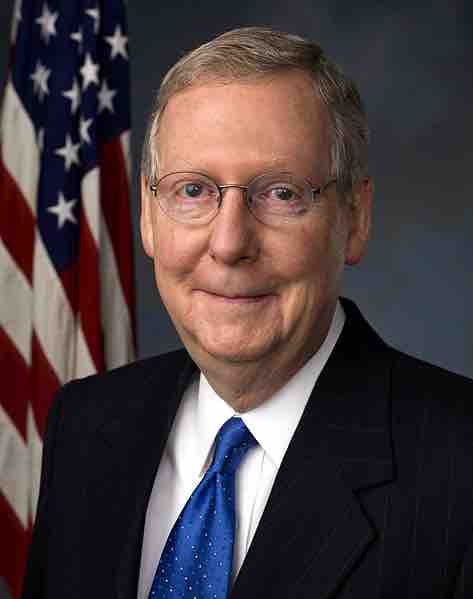Introduction
The Bipartisan Campaign Reform Act of 2002 is a United States federal law amending the Federal Election Campaign Act of 1971 regulating the financing of political campaigns. Its chief sponsors were Senators Russ Feingold (, D-WI) and John McCain (, R-AZ). The law became effective on November 6, 2002, with the new legal limits going into effect on January 1, 2003. Although the legislation is known as "McCain–Feingold," the Senate version is not the bill that became law. Instead, the companion legislation introduced by Rep. Chris Shays (R-CT),H.R. 2356, is the version that became law. Shays–Meehan was originally introduced as H.R. 380.
2008 Republican Party Presidential Candidate John McCain
Senator John McCain from Arizona.
Russ Feingold
Senator Russ Feingold from Wisconsin.
The Act addresses the increased role of soft money in campaign financing by prohibiting national political party committees from raising or spending funds not subject to federal limits. Soft money refers to "non-federal money" that corporations, unions and individuals contribute to political parties to influence state or local elections. The Act also addresses proliferation of issue advocacy ads, defining as "electioneering communications" broadcast ads that name a federal candidate within 30 days of a primary or caucus or 60 days of a general election. Any such ad paid for by a corporation or a non-profit organizations is also prohibited .
In June 2003, the D.C. Circuit issued a ruling on the constitutionality of the law, but the ruling never took effect as the case was immediately appealed to the U.S. Supreme Court.
Legal Disputes
Provisions of the legislation were challenged as unconstitutional by a group of plaintiffs led by then–Senate Majority WhipMitch McConnell . President Bush signed the law despite "reservations about the constitutionality of the broad ban on issue advertising. " Bush appeared to expect that the Supreme Court would overturn some of its key provisions. However, in December 2003, the Supreme Court upheld most of the legislation in McConnell v. Federal Election Commission.

Mitch McConnell
Official portrait of United States Senator Mitch McConnell (R-KY)
In McConnell v. Federal Election Commission, the United States Supreme Court upheld the constitutionality of most of the Bipartisan Campaign Reform Act of 2002 (BCRA). The Supreme Court heard oral arguments in a special session on September 8, 2003. On December 10, 2003, it issued a complicated decision that upheld the key provisions of McCain-Feingold. These included "electioneering communication" provisions placing restrictions on using corporate and union treasury funds to disseminate broadcast ads identifying a federal candidate within 30 days of a primary or 60 days of a general election) The court also upheld the "soft money" ban prohibiting the raising or use of these funds in federal elections.
Impact and Overturn
The impact of BCRA was felt nationally during the 2004 elections. One immediately recognizable impact was the so-called "Stand By Your Ad" provision. The provision requires all U.S. political candidates and parties to identify themselves and state that they have approved a particular communication, i.e. "I'm (a candidate) and I approve this message. "
In Federal Election Commission v. Wisconsin Right to Life, Inc., the Supreme Court ruled that the organizations engaged in genuine discussion of issues were entitled to a broad, "as applied" exemption from the electioneering communications provisions of BCRA applying to naming a candidate before an election or primary. Observers argue that the Court's exemption effectively nullifies those provisions of the Act, but the full impact of Wisconsin Right to Life remains to be seen.